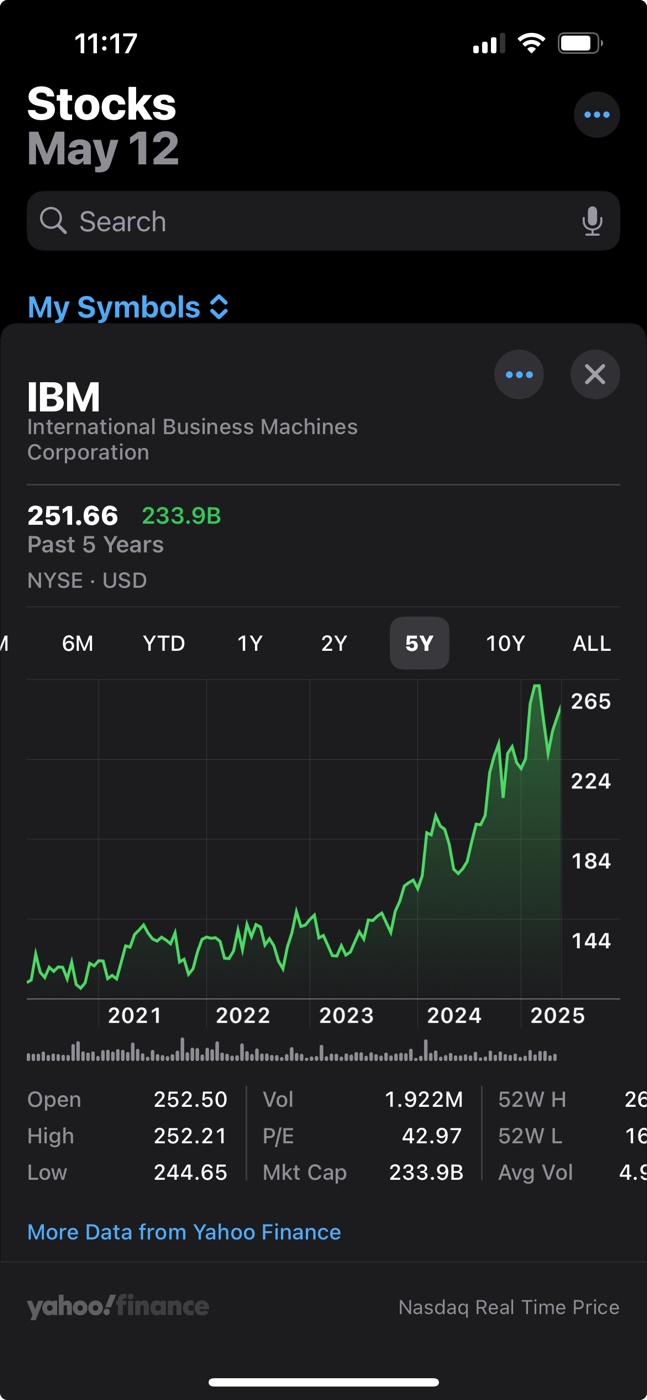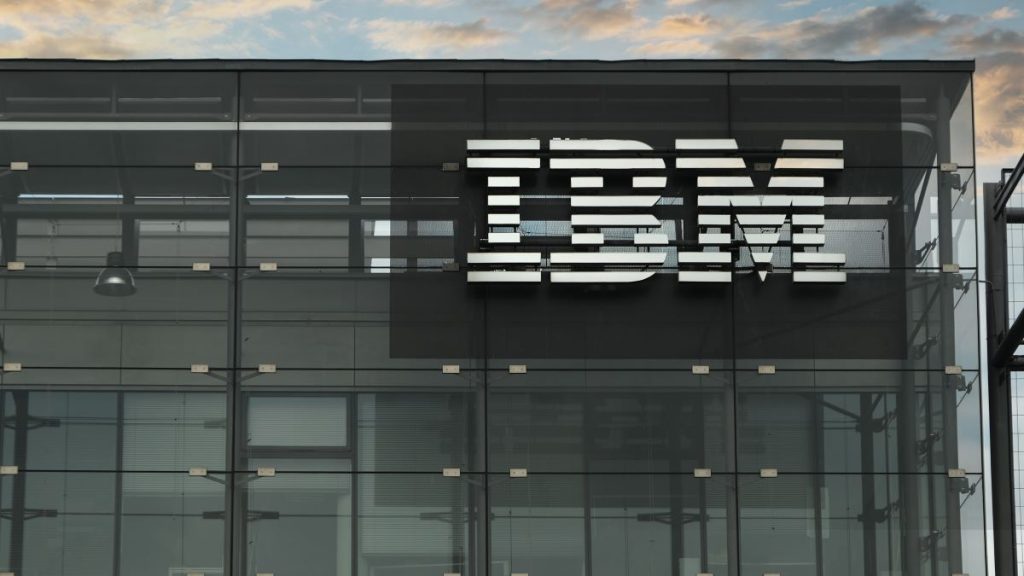
Prior to IBM naming Arvind Krishna CEO in April 2020, the company — despite its vast technological prowess and vertical-industry expertise and its iconic history — resembled a woolly mammoth so detached from current reality that it didn’t even realize it had two feet in the tar pits of extinction.
Over the past five years, Krishna pulled off his first miracle by slashing the organizational bloat that stifled customer-centered innovation and instilling a culture of co-creating the future with customers and partners.
Has it worked? Here’s a quick answer in graphical form, and then some additional thoughts:

Per this screenshot from yesterday morning, IBM’s market cap has doubled under Krishna’s leadership;
IBM’s formerly aimless strategy is now tightly tied to the essential hybrid cloud, AI, data, and industry expertise;
IBM’s got a fast-growing $6-billion business in GenAI and agentic AI;
by demanding a focus on delighting customers rather than on internal politics and maintaining the status quo, Krishna has swapped out tens of thousands of turf warriors and replaced them with hungry growth hackers; and
the company’s an unquestioned leader in computing’s next big trend, one whose potential impact could rival that of AI: quantum computing.
And quantum computing provides the platform for Krishna’s second miracle: re-establishing IBM as a company that is deeply rooted in the U.S. and fully capable of driving innovation and growth for clients across the globe.
A few years ago, Krishna had his hands more than full in turning the company around and regaining the confidence and trust of the world’s largest organizations that for decades had relied on IBM to not only power their operations but also help them move smoothly into the future.

AI Agent & Copilot Summit is an AI-first event to define opportunities, impact, and outcomes with Microsoft Copilot and agents. Building on its 2025 success, the 2026 event takes place March 17-19 in San Diego. Get more details.
But today, with customers large and small across every industry re-engaging with IBM to not simply “move smoothly into the future” but indeed to define and create that future, Krishna’s now in a position to boldly proclaim IBM as one of the world-shaping technology powerhouses of the coming decade.
So, I was quite delighted when I read about IBM’s recent “$150-billion investment in America,” including a $30-billion commitment to manufacturing some of the world’s most advanced technologies. From the press release:
Today IBM announced plans to invest $150 billion in America over the next five years to fuel the economy and to accelerate its role as the global leader in computing. This includes an investment of more than $30 billion in research and development to advance and continue IBM’s American manufacturing of mainframe and quantum computers.
“Technology doesn’t just build the future — it defines it,” said Arvind Krishna, IBM chairman, president and chief executive officer. “We have been focused on American jobs and manufacturing since our founding 114 years ago, and with this investment and manufacturing commitment, we are ensuring that IBM remains the epicenter of the world’s most advanced computing and AI capabilities.”
‘Defining the Future’
At the beginning of each episode of my daily Cloud Wars Minute videos, I ask a simple — not easy, but simple — question: “Are you creating your own future, or are you going to be willing to live in a world where somebody else sets all the rules for you?”
In that spirit, I love Krishna’s perspective about the intertwined roles of technology and the road ahead of us: “Technology doesn’t just build the future — it defines it.”
And that ongoing definition will become much more malleable with the onset of quantum computing, a remarkable domain with which Krishna has been intimately involved since its inception at IBM about a decade ago. With IBM’s business now back on solid footing and its clients once again turning to Krishna’s company for deep strategic guidance and partnerships, IBM has earned the right to make such claims. But just a handful of years ago, it would have been utterly laughable for IBM to have made such claims and expected clients to bet their businesses on a company that was struggling to get through each quarter, let alone define the future.
Manufacturing the Future in the U.S.
In closing, here are two intriguing excerpts from the IBM press release about the interwoven strands of highly advanced technology and U.S. manufacturing:
Mainframes: “That legacy continues in Poughkeepsie, New York, where we manufacture the cutting-edge mainframes that are the technology backbone of the American and global economies. More than 70% of the entire world’s transactions by value run through the IBM mainframes that are manufactured right here in America.”
Quantum computing: “IBM also operates the world’s largest fleet of quantum computer systems, and will continue to design, build and assemble quantum computers in America. Quantum computing represents one of the biggest technology platform shifts and economic opportunities in decades and will solve problems that today’s conventional computers cannot solve. Enabling these solutions will not only help us better understand the fundamentals of how the world works but are projected to transform American competitiveness, jobs, and national security.”

Ask Cloud Wars AI Agent about this analysis

